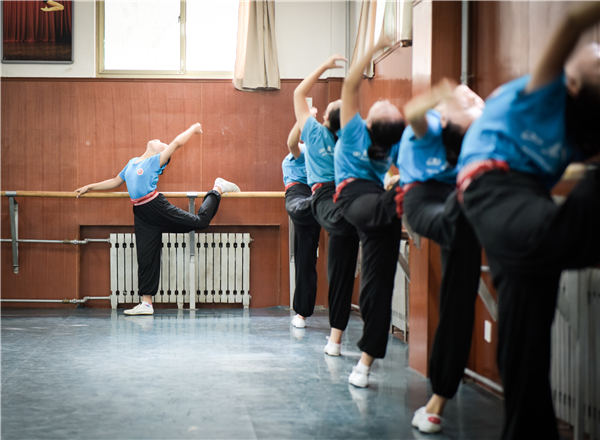 |
|
Local opera performers in the same city during a routine practice. |
Declining market
Like many traditional Chinese folk opera forms, it was once on the verge of dying out.
"During the past 10 years, there was no market for traditional Chinese folk operas. Local folk opera troupes like ours rarely performed in cities. We had to go from one village to another to make a living," says Kong, who started learning the traditional opera in Heze Art School at age 16.
Kong was born in a small village in Dingtao county, which had only one outdoor stage.
The winters there were freezing and the summer heat was intense.
She recalls that it took half an hour to hike up a narrow street to get to the stage.
But whenever the local erjiaxian troupe visited her village, Kong would get up early, wear her best clothes to go and watch its performance.
"The troupe usually performed after sunset as people were busy with farming in the daytime. I often sneaked backstage and stared at the actors doing makeup," she says.
Wang Tingqi, deputy director of the Shandong provincial department of culture, says: "After many years of silence, folk operas from Shandong province are beginning to breathe again, adding color to local cultural events."
According to Wang, there are 24 folk opera forms in the province, including Peking Opera, liuzi opera, dapingjiao opera and erjiaxian opera, and 18 have been included in the National Intangible Cultural Heritage list.
For the past decade, the folk operas of the province have been overshadowed by TV, movies and computer games.
Some folk opera troupes have folded up because of declining market. But the situation has started to change since the government stepped in.